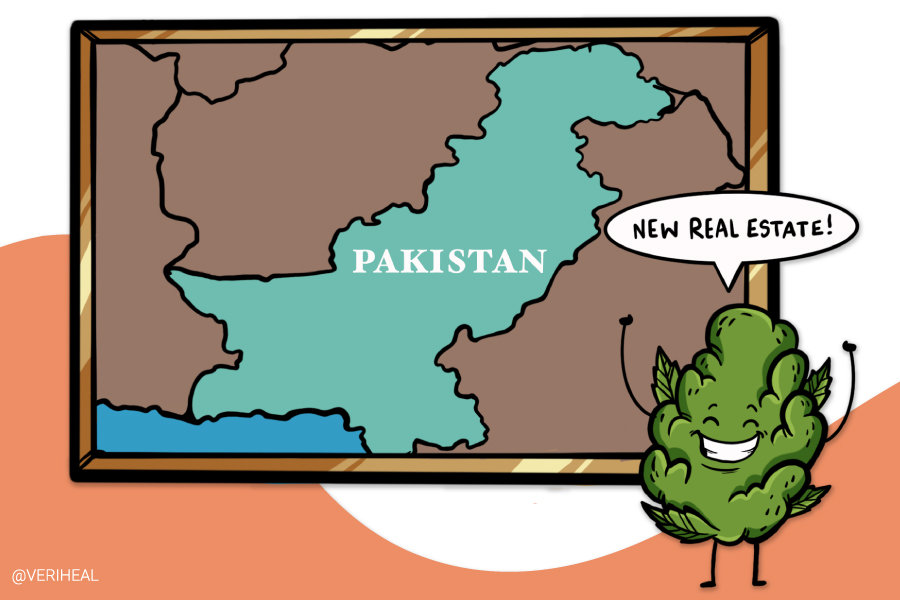In a new breakthrough for the cannabis legalization movement, the nation of Pakistan has this week legalized domestic hemp cultivation for the very first time. Pakistan looks to enter the CBD market and to capitalize on the government revenue made possible through the sale of legal cannabis products, much as many other nations and US states have done before them. Pakistan’s Minister for Science and Technology, Fawad Chaudhry, has spoken excitedly about the potential earnings that will become available to Pakistan as a nation now that they are entering this lucrative market.
What Legalization Will Look Like in Pakistan
So far, Pakistan has no plans to legalize THC. Only hemp-derived CBD products will be made legal for production and use in the country. To clarify, when we talk about hemp-derived products, we are by definition talking about products with less than 0.3% THC concentration—a low enough amount, in other words, that it is not likely to have any psychoactive effects whatsoever on users. Sticking to hemp, for now, will allow Pakistan to more easily enter the global CBD market, a matter that can be complicated because THC is still illegal in many more places than hemp is.
Pakistani hemp will be grown in the city of Jhelum, at the nation’s Herbal Medicine Park. Herbal medicine is a significant part of the culture for many Pakistani people, and as recently as 1983, 63% of the population relied on herbal medicines. For that reason, the nation still devotes itself to the production of many different herbal medicines and supplements. Hemp will be just one of many grown in the park. The climate in the Jhelum area of Pakistan is fairly well suited to growing cannabis, so Pakistani people have good reason to believe that their cultivation of the hemp crop will be successful and fruitful.
What’s in Store for Hemp?
As for what Pakistan plans to do with its CBD, the goals are highly diverse and extremely ambitious to boot. Of course, as discussed, medicines are one part of the plan, and it is a significant part. Hemp will be used to make oils, and the leaves will also be used in the creation of medicines. Chaudhry refers to countries such as China and Canada, both of which are actively engaged in the processes of hemp research and cultivation. Pakistan is ready to join that process along with other nations and also plans to involve itself in the arena of hemp-based textiles.
Why You Should Get Your Medical Marijuana Card
Veriheal has satisfied millions of patients nationwide by giving them access to these benefits
- Larger purchase limits
- Peace of mind
- Enhanced legal protection
- Access to higher potency strains
- Save up to 25% on cannabis purchases
- Skip the line at the dispensary
“Worldwide, this fibre is replacing cotton,” Chaudhry notes. “Clothes, bags, and other textile products are being made using this plant’s fibre. This is a $25 billion market and Pakistan can take a big share in this market.”
The Future of Cannabis in Pakistan
Of course, it will take time to see what the final version of Pakistan’s cannabis industry will look like. Will the nation specialize in medicinal products or textiles, continuing to use hemp as the backbone of its cannabis-based economy? Or will it expand into more recreational products? Will we see the beginning of a market for recreational CBD, sold for everyday use at dispensaries?
Perhaps the Pakistani government will even move toward allowing the cultivation and sale of THC based products from the cannabis plant? Based on the current ideas espoused by Chaudhry, it seems that it will depend on what’s going on on the rest of the world stage and how lucrative a proposition including THC products might be for the nation as a whole. Either way, it is clear that exciting things lie ahead for Pakistan and for its people.
Author, Share & Comments
















